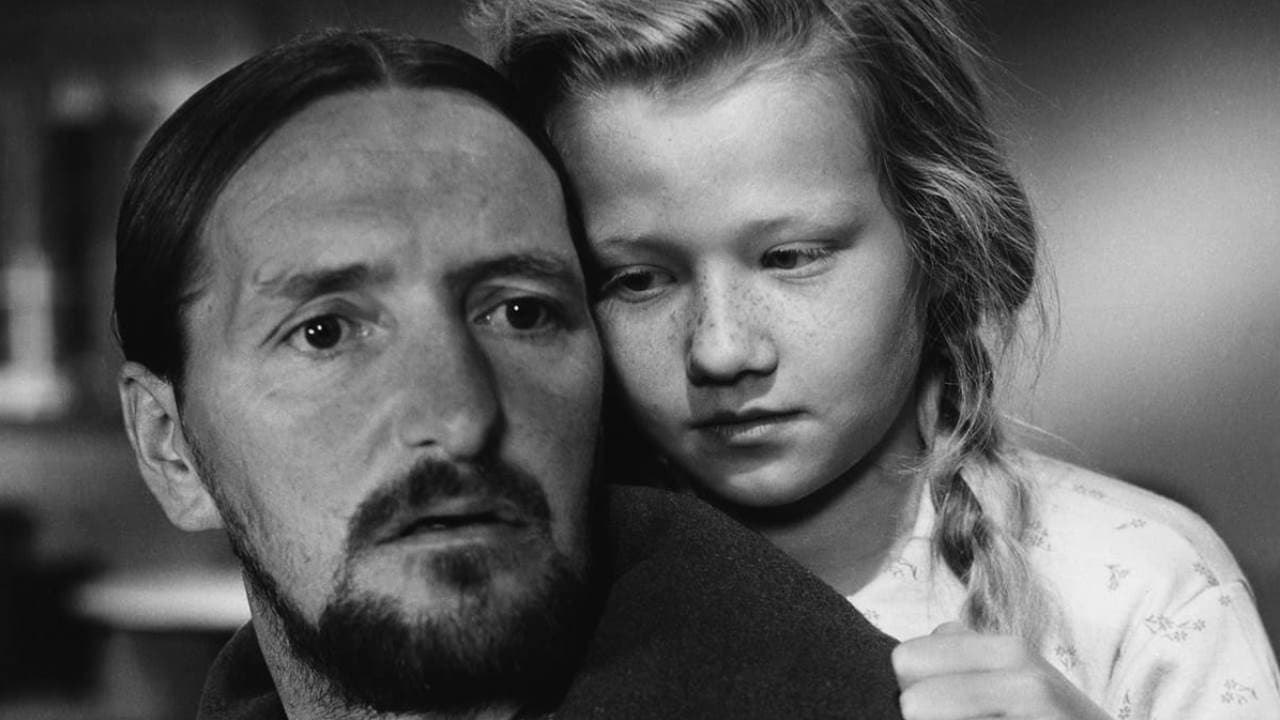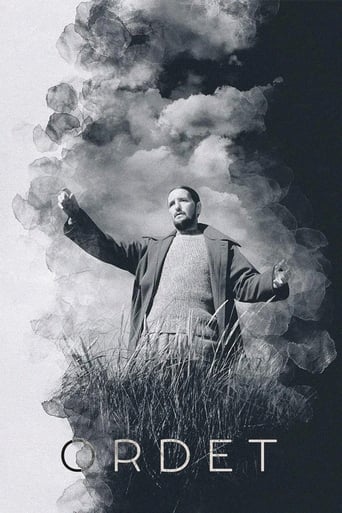

one of my absolute favorites!
... View MoreThe movie is made so realistic it has a lot of that WoW feeling at the right moments and never tooo over the top. the suspense is done so well and the emotion is felt. Very well put together with the music and all.
... View MoreStrong acting helps the film overcome an uncertain premise and create characters that hold our attention absolutely.
... View MoreYes, absolutely, there is fun to be had, as well as many, many things to go boom, all amid an atmospheric urban jungle.
... View MoreIf other atheists than myself react to this movie as I did, they will find its story of academic interest in the everlasting quest to understand the role that religion plays in human behavior, but they will have a hard time identifying with the motivations for the behaviors of many of the characters. The story concentrates on a Danish farming family in 1925. The main characters are: the father Henrik, a member of a liberal Christian sect; Mikkel, a son who has lost his faith; Inger, Mikkel's wife; Johannes, a son who believes himself to be Jesus Christ; and Anders, a third son. Also, there is Peter, a tailor who is a member of a conservative Christian sect. The characters we get to know well are Henrik and Mikkel. The only notable thing revealed about Anders is that he has fallen in love with Peter's daughter Anne, precipitating a proxy religious war between the two Christian factions. Johannes emerges from time to time spouting quotes from the Bible and other moral admonitions--that is all we know about him, and all we need to know, outside of his having been driven to his madness by studying Kierkegaard. As far as I am concerned the movie could have done with a lot less of Johannes. One takeaway for me was to witness yet once again the power of religion to cause much grief. If religion were removed from the equation here, then I think all of these people would have been much happier.The movie is clearly based on a stage play and it has not been opened up much to make it more than the filming of a play.Given the language barrier for me and the fact that I could not identify with most of the characters, I did not find the acting to rise above average. The women are not given much to go on. Mikkel's wife presents a pleasant, beatific presence and Anders' girlfriend is treated by Peter like property.The birth scene I found excruciatingly painful. Not much was actually shown, but the offstage sound effects and final outcome were horrific.Movies like this leave me in a quandary. I can recognize the quality of the production, but the main message (the value of pure faith to accomplish miracles) is something that I reject. Could any homophobe ever be enthusiastic about "Brokeback Mountain?"I would be less critical of this movie if it had ended with Anne's becoming part of Henrik's family. Instead the movie presses on to a resurrection scene that I found to offer an unsatisfying and quite unbelievable resolution.
... View MoreThe classic status of Carl Dreyer's Passion Play has weathered years of change in attitude and taste better than the film itself: a stiff, theatrical meditation on the fundamental conflict between religion and faith. The opposing creeds are represented by a pair of sturdy, rural Danish households engaged in a polite theological rivalry, the flames of which are fanned by a Romeo/Juliet romance between the youngest son of the more humanistic family and the daughter of the puritanical clan down the road. The point is well taken: a healthy appreciation of life is more important than a dogmatic pursuit of an afterlife. But in what many believe to be his finest film Dreyer approaches the story like an undertaker to a corpse, carefully arranging each scene in a static tableau and embalming the script in the formal delivery of each line of dialogue.
... View MoreI watched this very late at night on UK TV, when tired and drunk, many years ago. I remember very clearly how it had a very moving, powerful climax. Now sober - and wiser etc, I got it on DVD - it had less of an effect, though the trepidation of something arising meant the final 20mins or so was quite nerve-racking. Then, there was the 'does she/ doesn't she'? flitting back and forth in my mind. Of course this belies medical and logical resurrection which leaves only a spiritual one. It seemed unsettling and unsatisfactory almost that she simply wakes up, though it was quite well realised. If that happened in a lesser film without the religious and moral issues being thrashed out then it would be meaningless and a waste of time.Whichever way you want to look at it, those scenes are very moving. The steady, thoughtful pace, the small but significant issues that raise the saga beyond period drama all lead to this. The simplicity in design, cinematography, dialogue all bring this anticipation....we have to see what will happen, even IF anything happens.To a not terribly devoted Christian, it does reveal to me that a unification in prayer, thought and resolving of family disagreements and neighbourly dispute all added to a wave of human love and power. Whether that would have pulled her through or not is the BIG question, of course. I haven't used God's name in that sentence; maybe I should have - but it's a film! I'm viewing Christians who seem to interweaving moral judgements far too tightly into the big issues that affect them. Of course I'm going to say that - I'm of a different period, country, culture and watching a director's version of his interpretation of what he had in mind. They're too removed from my reality to strike a chord with me.My point has always been that I know other people of intelligence see deep and meaningful qualities, spiritual and morally, within it. I did too, and still do. I'm not likely to think any deeper of its intentions or qualities, other than it's a very good film and would recommend it to others, if I thought their tastes could be open to it.Lastly and not knowing where to put this in, I also found it baffling and a trite annoying that the two neighbours' opposing, yet "same" religion wasn't better defined. But - I can see many gremlins and questions being raised if they had; there's always going to be someone of either, or another faith saying things like 'we don't think that way' etc. It's like a location that's characterised very specifically and is named - someone's going to want to sue someone for slander....I also found it easier to place Johann's severely distorted and potentially disruptive over-delusional ramblings - his witterings add sincerity and meaning to, in particular, the priest and the doctor, as well as to their importance. Without these distractions the film would be too earnestly religious, for me at least. It showed the fine line between a force that helps people and gives strength and one that was in fact a real danger - as fanaticism is in any area of life.
... View MoreTime for my annual dose of Dreyer, taken like medicine. Is it fair that Dreyer has a reputation of being turgid, slow, archaic, depressing, theatrical? Well, yes. Look at this. A large part of the time is spent watching people walk slowly from one side of the room to the other. In fact, this seems to be Dreyer's main directorial idea because the rest of the time they just stand there like hatstands. At climactic moments a door may be opened. There is no attempt to vary pace or tone; the dialogue is as stilted as silent movie cards. In fact, this looked and felt like a film made in 1915, not 1955.The film presents a Danish society so insular that subtle shades of Christianity tear them apart. That might be interesting if treated with any sort of subtlety or depth. Not here, where the plot is built with a few huge stone bricks. And we have not one but two of the most morose characters in all cinema. Old Borgen, who has the lion's share of the dialogue, always stares fixedly into the middle-distance while speaking - I presumed he was reading his lines off a card.Dreyer is a man entirely without humour. The mad son Johannes looks like Rasputin with slicked down hair and an immaculate centre-parting; he thinks he is Christ and walks in and out slowly spouting religious twaddle in a high pitched monotone with no facial movement whatsoever. Perhaps Dreyer was paying homage to Ed Wood here. Johannes' every appearance is unintentionally hilarious. If he can't see this, Dreyer really must have something missing. If you're not laughing at Johannes yourself every time he appears, I'm not sure I want to know you.And never have I been so let down by the ending of a film. A literal deus ex machina that I simply found intellectually offensive - all the more so because we can see it coming a long way back but are still led at snail's pace towards it.Painfully sincere, and good for the soul maybe, but woefully unaccomplished. To be enjoyed only by Quakers.
... View More